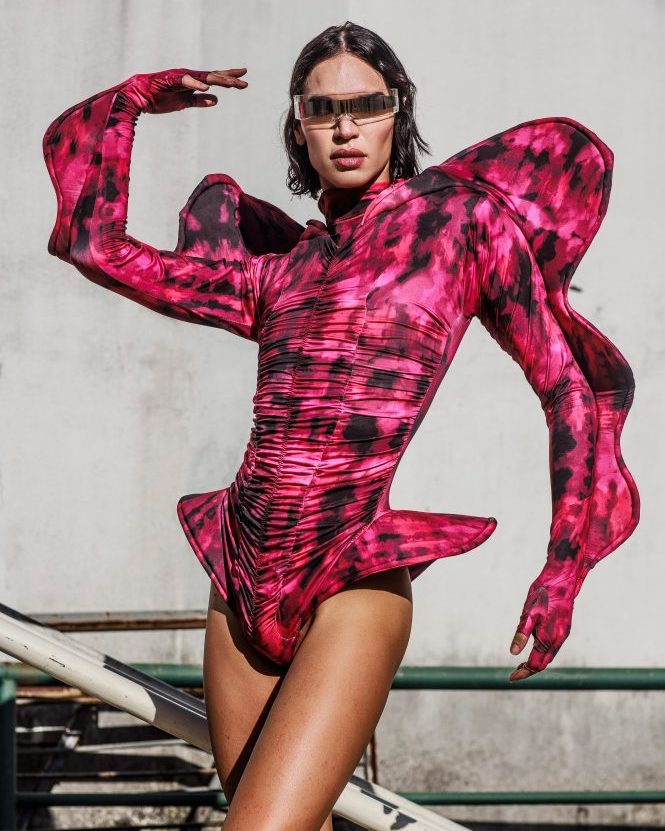
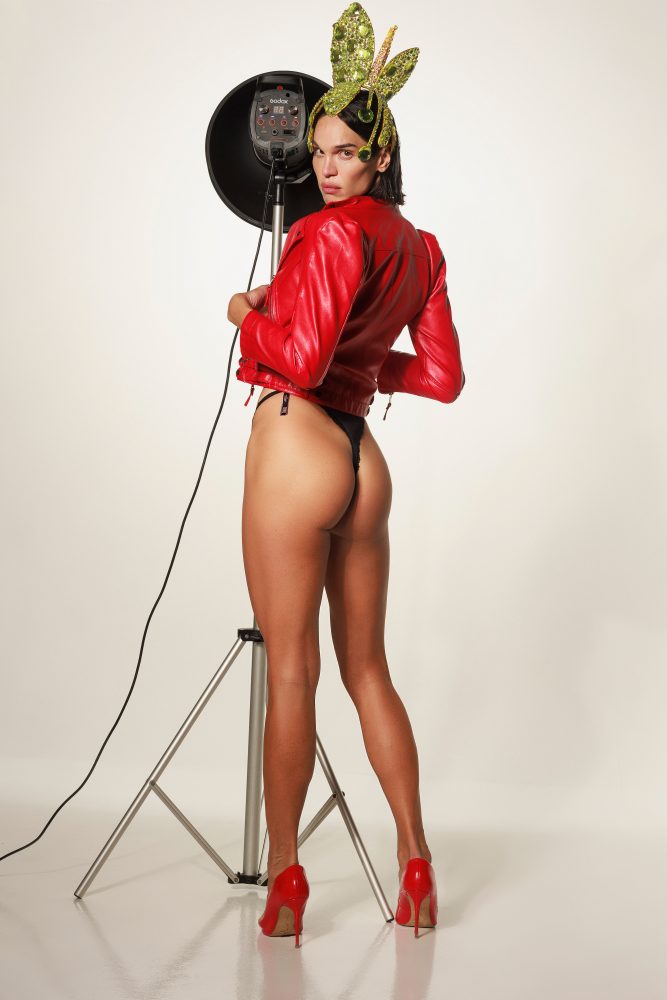
Tzef Montana Photographed by Lucio Luna. Styled by Leo Belicha
Tzef Montana, actor, model, and trans right activist takes us through her journey to celebrate in the brilliant humanity that is Brazil’s Carnival.
A story that can help queer youth find its remedy. I had a calling to come here that was beyond desire. It was more of a need. I felt inspired by the music, the art and everything I found on the internet about Brazil. It does have a reputation of being unsafe and that was alarming and made me hesitant to come. However, in my experience after coming here, I can say, my heart and soul haven’t felt safer anywhere else in the world.
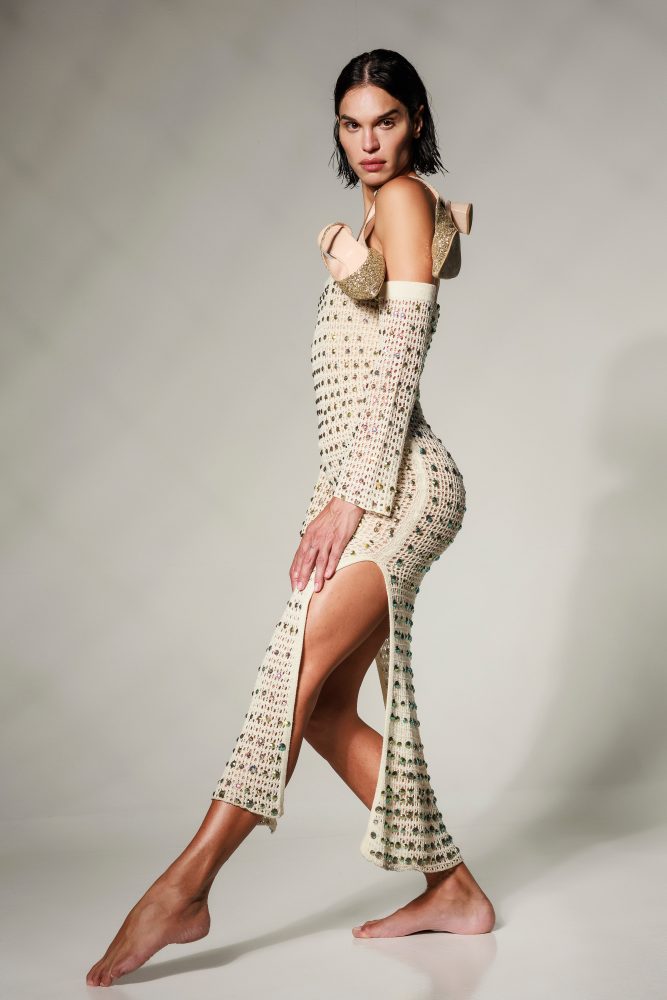
Tzef Montana Photographed by Lucio Luna. Styled by Leo Belicha
Carnival is about showing a way to put the white supremacy’s pain and sorrow away. It was born by the people. After been enslaved, disrespected and later having managed to escape their oppressors’ worse tortures in Europe and other African colonies – they found shelter in these lands. They found happiness, which is what they call “alegria”, a word that can educate societies of countries that are heavily dominated by white supremacy. Here, no one even needs to care about pronouns or talk about gender to exhaustion. Instead of doing that they’re focusing on ways to be healed from pain, no matter where it came from. They put their focus on finding ways on how to move on in life with their head up. Focused to find a solution that will solve that problem.
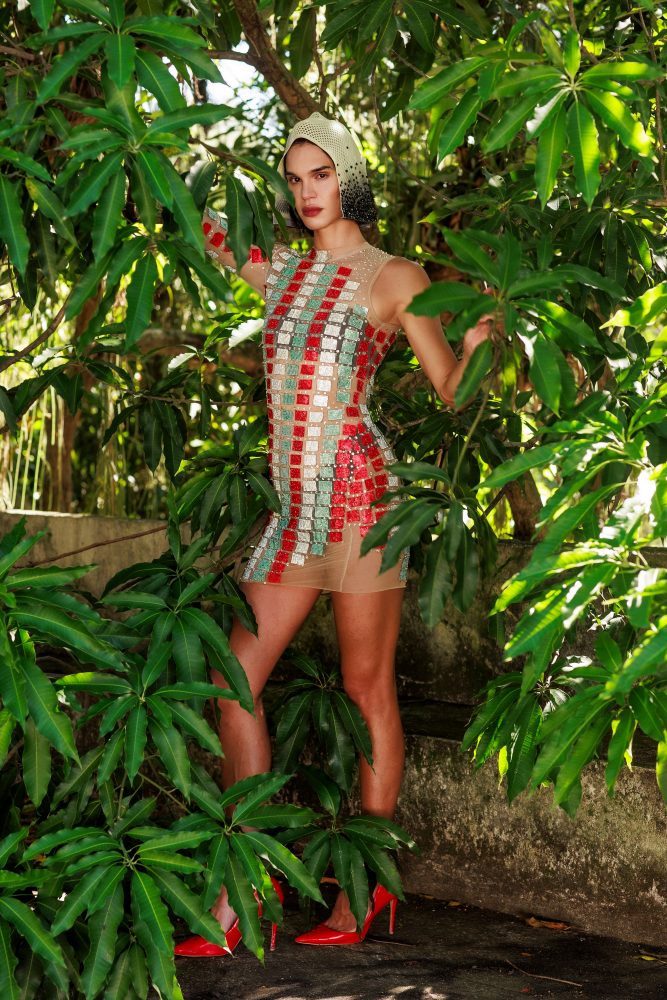
Tzef Montana Photographed by Lucio Luna. Styled by Leo Belicha
Lots of times in western mainstream media, storytellers seem to be capitalizing from our lives, from building a circus and overdramatizing wounded people’s trauma. Yes, America is a society of wounded people and yes homophobia and discrimination which is the root of the problem, is still very present even at schools. We keep reading about stories of torture, where kids, minorities, gays, trans, lesbians, and all queer people are being bullied. Has this been helpful to us? Don’t know if it helped others understand me but it for sure fill me up with terror and darkness.
This story is not another story about being raised in a culture that forced one to cope unbelievably cruel and systematically fascistic principles. That’s not the spirit of Carnival. This is also why you don’t see people being pessimistic here. Instead, you’ll see people celebrating authenticity, uniqueness and color. It’s in their DNA after all, their culture and history itself taught them well why human rights need to be valued. Now we can move and the obvious can be finally taken for granted. How liberating is that?
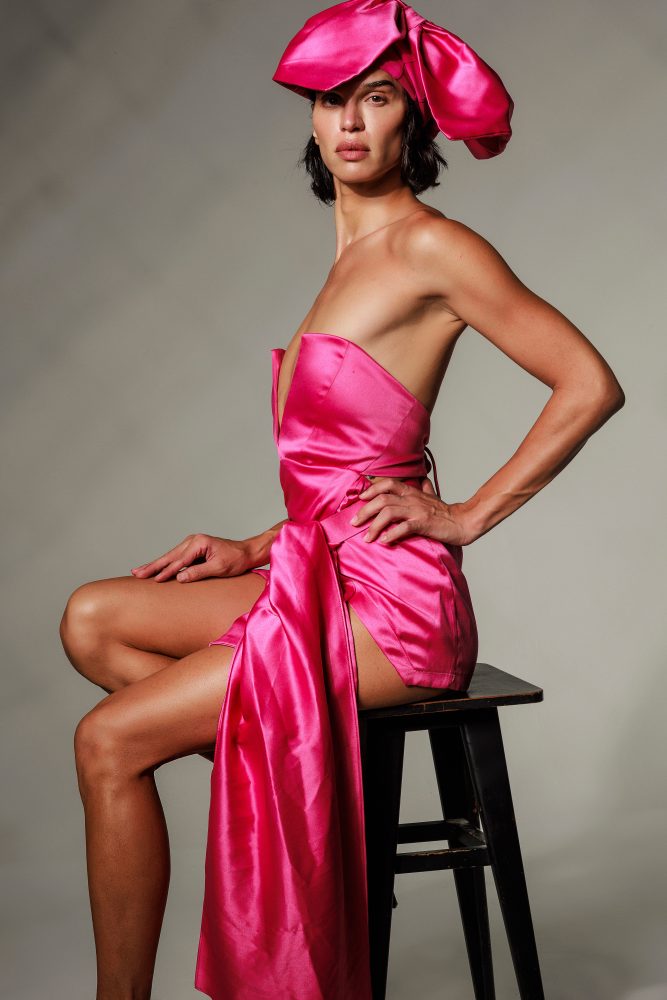
Tzef Montana Photographed by Lucio Luna. Styled by Leo Belicha
February is the time of the year where the whole world puts the spotlight on Rio’s carnival. If you look closer, you’ll see that it is not just about getting all dressed up and having fun just for the sake of it. Brazilian comprehend that carnival spirit has an idea and they take it very seriously. It’s a tradition that can resonate to trans people a lot as well, but most importantly it resonates to humanity overall. I, myself maybe for the first time in my life after having lived in Athens, Los Angeles, NY and London, do not feel the need to wave the LGBTQ flag. I do not feel that the purpose of being here and participating in these rituals is to represent transness. There’s really no need for that here.
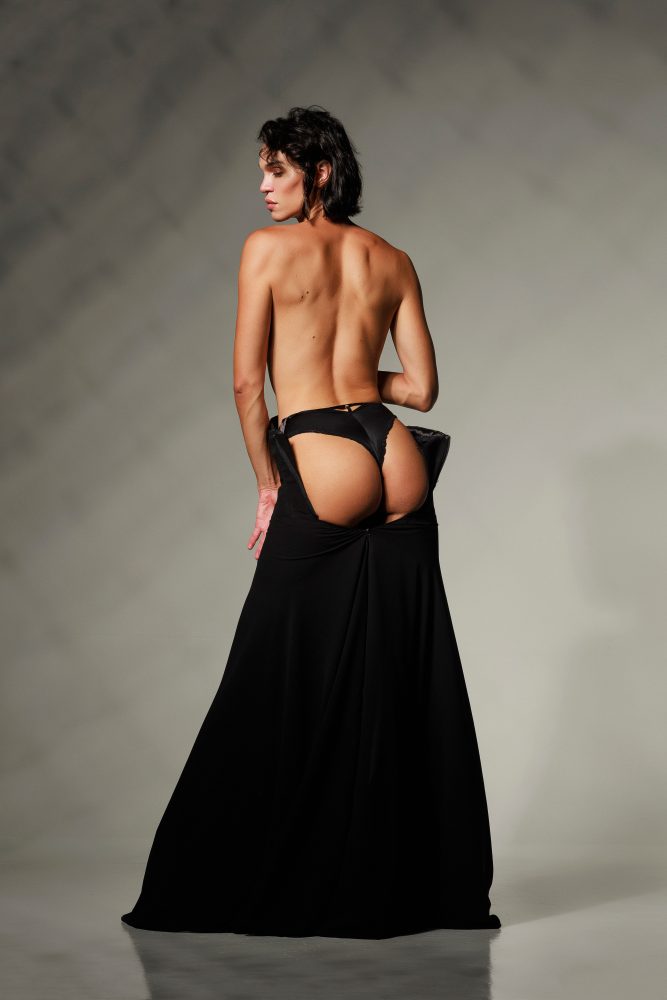
Tzef Montana Photographed by Lucio Luna. Styled by Leo Belicha
I’m already represented everywhere I look. I am here for whatever else it is I have to offer to the world. I have that right that “civilized” metropolitan cities gave me in paper but couldn’t give me in my everyday life. I feel like I have a place here, a safe and respectful position where I can simply be myself in peace. Can you believe how great this feeling is, especially for a person like me?
Carnival of course also helps many communities survive as it financially supports families who rely on working all year to earn during carnival. Each school that parades from each region supports their whole community.
Best,
Tzef Montana.
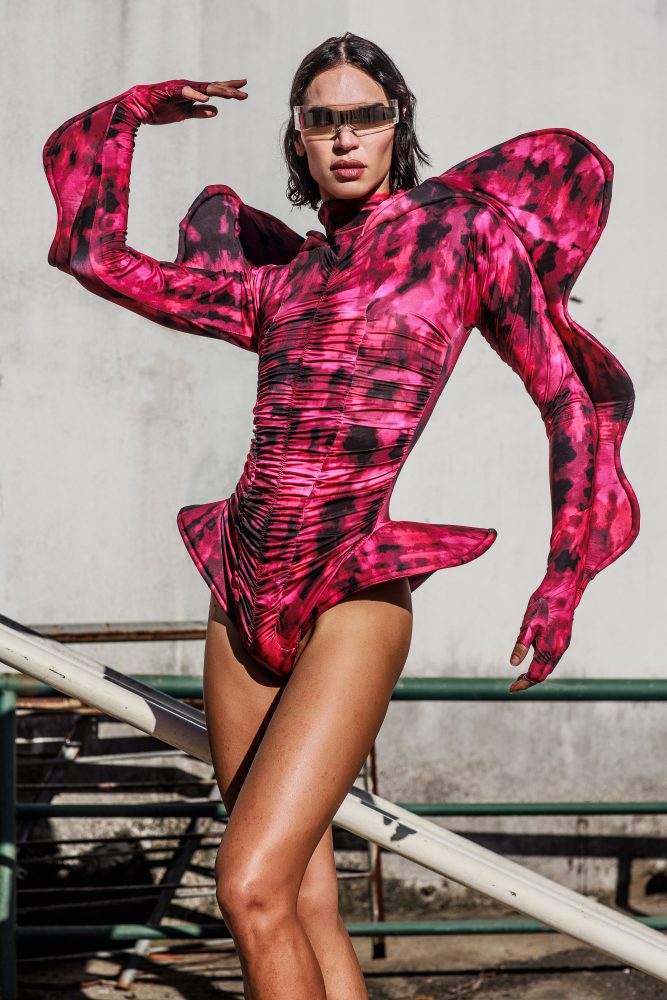
Tzef Montana Photographed by Lucio Luna. Styled by Leo Belicha


